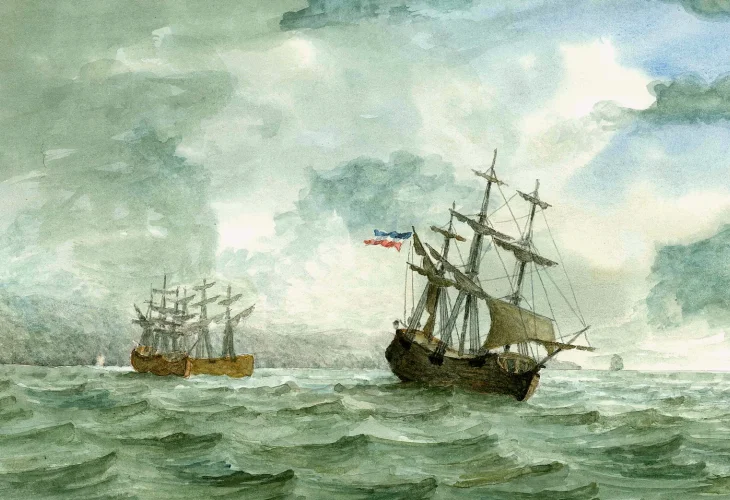Donna Gracia: The Remarkable Story of the Woman Who Saved Thousands of Jews
Her agents were scattered across Europe as spice merchants, but each of them kept an extra eye on smuggling routes, payments to smugglers, and connections with other Jews looking to escape.
 Illustration (Photo: Shutterstock)
Illustration (Photo: Shutterstock)Beatriz de Luna was born in Portugal in 1510 to a family of conversos. Her neighbors and friends did not know her true name was Hannah Nasi. Her father fled Spain during the expulsion and moved his business to Portugal, but when Portugal expelled Jews three years later, he couldn't leave and stayed as a 'converso.' At age 18, Beatriz married Francisco Mendes, also a Jewish converso. They named their daughter 'Briana,' but her Jewish name was 'Reina,' meaning queen. These names hint at the aspirations of these remarkable people. Indeed, Beatriz was destined for greatness, not a hidden life.
Beatriz emigrated to Antwerp, proudly identifying as Jewish. She successfully transferred all her assets and businesses. Known as 'Donna Gracia,' she acquired great wealth, investing a significant portion to help Jews escape Spain and Portugal. Since authorities wouldn’t allow Jews to leave these countries, hefty sums had to be paid to smugglers who led people over mountain passes and ridges to nations beyond the far-reaching grasp of the Inquisition.
Her agents, posing as spice traders, were embedded across Europe, with each one keeping an eye on smuggling routes, payments, and connections with other Jews wishing to flee. Jews were hidden as stowaways on her merchant ships, with her employees turning a blind eye. Special agents at the ports where the ships docked would inform the stowaways of where they could disembark safely. Many found refuge in the thriving Jewish community of the Netherlands. A separate network handled the transfer of Jewish assets from Spain and Portugal through sophisticated means of money laundering, ownership transfers, and other legal mechanisms available to someone of her vast wealth.
British historian Cecil Roth wrote in 1946 that Donna Gracia was "the brain behind this complex operation," saying, "there is nothing like it in Jewish history, or perhaps even in any history up to its time. Never was there an underground railroad so well-organized for saving Jews and delivering them to safety."
Emperor Charles V coveted Donna Gracia's wealth and attempted to force her to marry her daughter to one of his noblemen. Knowing of the plan, Gracia fled to France with most of her wealth, then moved to Venice, where she reestablished her operations to rescue Jews and conducted business that spanned Europe and the Balkans. Yet, Christians continued to harass her trade. So, Donna Gracia relocated to Turkey under Sultan Bayezid II. Her move spurred enormous economic growth there, prompting the Sultan to humorously quip about emperor Ferdinand, known as "Ferdinand the Wise": "How can you call Ferdinand wise, he impoverished his kingdom and enriched mine?"
Her home in Constantinople became a meeting place for scholars, led by Rabbi Yosef Karo. She supported Torah study, printed holy books, and funded Jewish communal needs, including ransoming Jews captured by pirates. Eighty poor people ate at her table daily. During the harsh winter of 1567, she purchased clothing and firewood for the needy and supported Jewish hospitals and schools. Her private synagogue, the 'Senora Synagogue,' accommodated Jews of all customs and still stands today in Izmir. Donna Gracia also established a yeshiva in Salonika, funding scholarships for its scholars.
Her life's dream was to resettle the Land of Israel, and as the wealthiest woman of her time, she could afford it. In 1561, she received permission from Sultan Suleiman to rebuild the city of Tiberias for a yearly fee of a thousand gold ducats. Her nephew, Don Yosef Nasi, led the project. The walls of Tiberias were reconstructed, houses were built, and the remains of her husband, Franco Mendes, were brought to rest on her estate in Tiberias, her home was ready to welcome her. The Portuguese traveler Pantaleonc de Aveiro, visiting the Land of Israel around 1565, recounts: "I heard from several Portuguese Jews about a Portuguese woman, who fled this kingdom with great wealth which granted her power and influence, spreading her name in these lands, and how she bought the city of Tiberias... and next summer she plans to come from Istanbul with her entire family to live in Tiberias, bringing all Jews wishing to join her. This news brought great joy to the Jews of the Land of Israel, who believed that with their settlement there, the Messiah must also come." However, in 1569, Donna Gracia passed away not far from Istanbul, before she could fulfill her dream of moving to the Land of Israel. May her memory be blessed.

